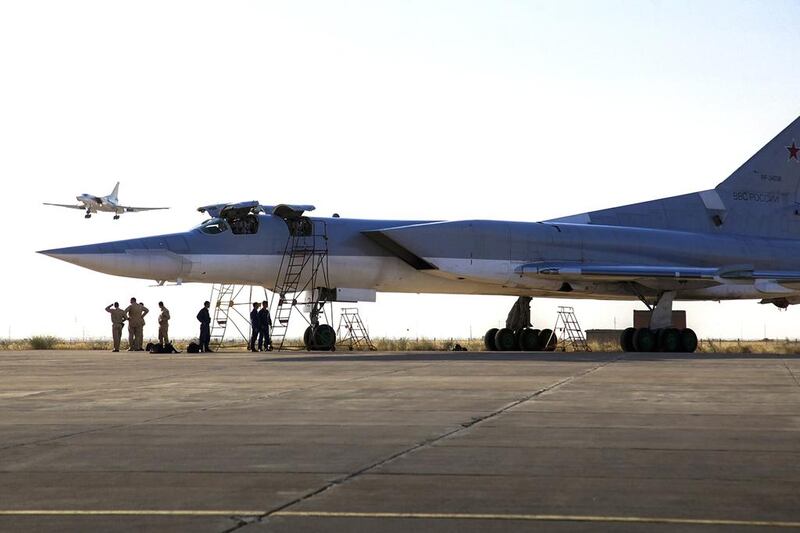Russian jets are now using Iranian airbases to launch raids into Syria. The announcement this week highlights the degree to which Russia has entrenched itself in the Middle East as well as the pragmatism that currently defines Moscow’s relationships across the region.
Just this month, Russian president Vladimir Putin welcomed his Turkish counterpart, Recep Tayyip Erdogan, in St Petersburg to mend ties and forge a new partnership to combat challenges in Syria. This comes after months of Russian military intervention in Syria to prop up the regime of Bashar Al Assad. Moscow is now a major military force in the Middle East.
Make no mistake, Russia’s vision for the future of Syria is not one that the West or the Arab world supports. Any equitable solution to the conflict in Syria must include the removal of Bashar Al Assad from power. Moreover, the extension of nefarious Iranian influence across Syria and continued meddling in the internal affairs of Arab countries is a clear and present danger.
These positions, however, don’t discount the efficiency of Russia’s strategy across the Middle East. As opposed to the United States, which has walked away from its self-declared red lines on intervention in Syria, Russia has willingly inserted itself in the Syrian civil war. At the same time, Moscow has been open to forming alliances with a diverse variety of countries from Turkey to the next US administration. Russia’s pragmatic aggression and willingness to establish itself on the ground should be a wake-up call for western countries looking for a solution to the region’s conflicts.
The time for inaction, indecision and the walking back of red lines is over. With the Obama administration on the way out, the next American president must view Russia’s military extension to Iran and Ankara’s pivot to Moscow as a sign that a new and frankly aggressive policy must take shape.
The longer the West waits, the more Russia will carve out its own influence, which will invariably mean the strengthening of the Assad regime and Tehran’s sway across the Middle East.
The US-led coalition has made great gains in defeating ISIL on the battlefields of Syria and Iraq. But those are small victories in a much larger war. To stay ahead of the curve, the Arab world and our partners in the West will have to adopt proactive solutions or run the risk that Iran and Russia will fill the vacuum.





